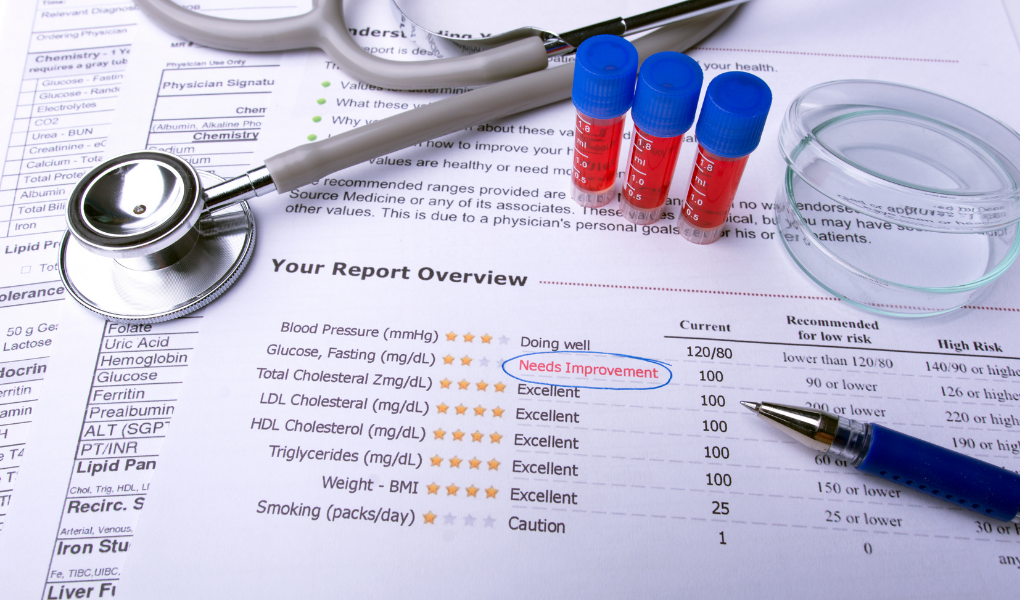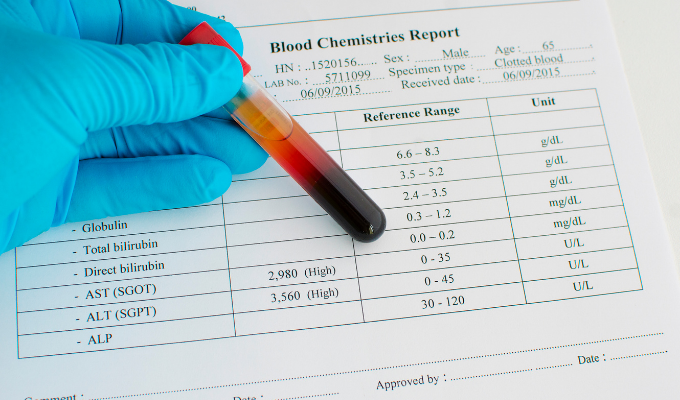What Can Be Learned From Trends and Changes in Our Blood Tests?

More Programs and Publications Featuring Dr. Kyle Riding
In this program:
Blood test results can show changes between tests or trends over a long period of time. Watch as medical laboratory scientist Dr. Kyle Riding explains reasons that changes may be seen between two blood tests, trends that may signal a medical condition when viewed over time, and advice to patients on how to advocate for themselves.
Transcript
Interviewer:
Our team recently connected with a patient who was diagnosed with a blood disorder, and having to look back at the results over a 15-year period, she saw that her levels increased over time, but by then it was too late. She is now learning to live with her blood disorder, which brings me to my next question. What can we learn from trends in test changes, and when should we be concerned?
Dr. Kyle Riding:
And key word that you just mentioned is trends, so it's important to remember that as living organisms, we as people are going to see fluctuations in our laboratory results, and I'm going to use myself as an example right now, I'm originally from Massachusetts, colder weather climate, and I used to have a hemoglobin value that was always around a 16.
The result was always a 16-gram hemoglobin, that was always that. Well, I moved to Florida about six years ago, and because of the change in climate and the change that can cause very modest changes in our physiology, I ended up at my first visit down here having a complete blood count run. And my hemoglobin was now 14.5, which we shouldn't see in a healthy patient, hemoglobin values drop drastically in a healthy individual. I deem myself healthy for the most part. So what we did was three months later, we re-collected the blood and we noticed I was still at a 14.5 and nothing had changed. And we did a little bit of research for my personal physician, and found that that's not unusual for someone moving from cold climates to warmer climates. But here's the problem. Not everyone comes with the three-letter degree after their name, and they may not be a physician or they may have no medical background. I'm a first-generation college graduate. My parents don't understand this, and I certainly understand when they call up scared or frustrated at results that make no sense to them, they just see it's abnormal, and what I'm going to recommend everyone is number one, you have to be your own best advocate by having your own data readily available for yourself, never have a laboratory test without getting those results and having them filed away somewhere. It is becoming much easier to do that as organizations have electronic medical records that will store that for you and different companies, third parties that produce cellular phones or other technology, create health apps that you can track your data in yourself, but even if it's paper records because that's what you're comfortable with, you should have those results so that you can always go to your physician and advocate and say, Look it...
I'm not crazy, these results are consistently trending down or consistently trending up, and having that data there and showcasing your concern will help you in that advocacy effort. The second is, trust your instincts, if you're seeing one singular change in a given laboratory result, ask your physician, “Hey, this result change pretty drastically or it changed a decent amount, maybe I'm wrong that it's a decent amount, but should we consider having this redone in a few months?” This recently happened to a loved one of mine who one of their white blood cell counts suddenly dropped down unexpectedly, could have been nothing, could have been something really bad, so she advocated to assure that they've had that redone three months later, fortunately, that white blood cell count bumped right back up to where it had normally been, and so just asking that question and feeling confident in knowing to your body, you should feel entitled in some aspects to ask that question. Maybe they won't always agree with you, but you're always entitled to ask the question, and finally, trust your gut. If you think something is off and you're not getting the answers that you need, it does not hurt to go seek a second opinion. If the second opinion agrees with the first physician, it's okay, maybe you should kind of reflect on what they're telling you, make sure you're taking good notes and your office visits and realize that two independent physicians or healthcare providers have given you the same feedback. But that second opinion really helps you get peace of mind and assure yourself that you're going to be okay, or that you need to have follow-up work done to assure that you have as best of an outcome as you could, so those are always my suggestions for patient advocacy.
The information on Diverse Health Hub is provided for educational purposes only, and is in no way intended to diagnose, cure, or treat any medical or other condition. Always seek the expert advice of your healthcare team. To learn more about privacy, read our Privacy Policy.
Related Videos:


























